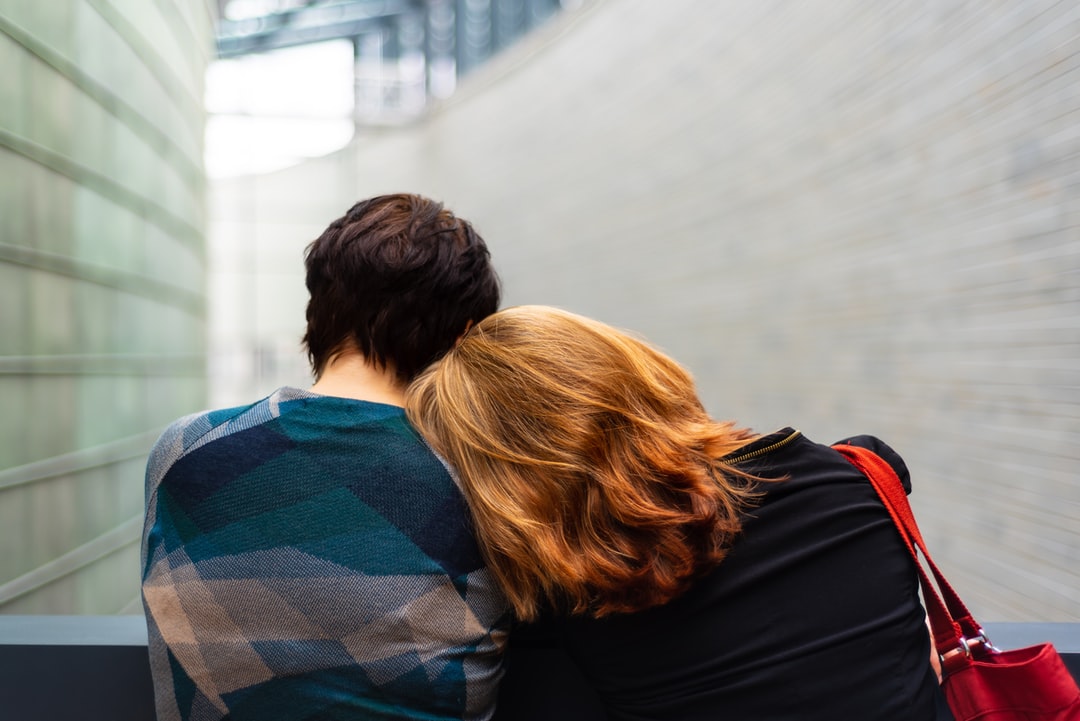
13 Things I Learned From Losing A Parent In My Twenties
Four years ago, my father was diagnosed with brain cancer. Two years later, after fighting with all his might, he passed away. It was one of the hardest things I’ve ever gone through, and due to my age, I felt quite alone.
I was 23 when he was diagnosed and 25 when he lost his battle, making me the the first of my friends to experience the loss of a parent.
Despite everyone’s best intentions, the pain of losing a parent is not something one can properly grasp until they experience it themselves. Two years on, my heart still aches, and I know it always will.
Below are some things I’ve learned from my own experience.
1. You will learn who your true friends are.
I experienced a mass exodus of friendships during those four years.
It began the day I found out about my dad’s diagnosis.
People who I’d seen almost every day, who I’d confided in for years about my highs and lows, who I’d share hundreds of wonderful memories with, just up and vanished.
They stopped texting. They stopped calling.
It was instantaneous. It was as if they felt my situation was contagious.
My personality hadn’t changed. Rather, I was just going through something that everyone has nightmares about from the day they’re born. Perhaps my presence was a flashing beacon, reminding everyone of their loved ones’ mortalities.
I’ve always believed in quality over quantity when it comes to friendships, and that truly loyal friends reveal themselves in those times of need. Losing a parent at 25 just meant that this process was fast tracked for me.
Friends who I thought would be in my life forever are no longer in my life, and that’s sad. But on the other hand, some friendships bloomed.
Colleagues of mine who were no more than acquaintances before are now some of my most incredible friends.
Those who saw me struggling every day of the week became the best support system I could have asked for, and will always be some of the most special people to me. I’ll always be there for them and will forever be grateful to them for unburdening some of my sadness.
Yes, it sucks to lose your friends, but if they leave you in the lurch during your worst, good riddance. It makes room for those who actually deserve to be there, so hold onto those ones.
2. People will say the wrong thing.
There are an abundance of phrases that we are taught to say to the bereaved.
“They’re in a better place.”
“Everything happens for a reason.”
“At least they’re no longer suffering.”
And although these were frustrating to hear, I had to keep reminding myself that those people generally meant well.
It’s much worse when someone says nothing at all.
I also don’t want to hear about the death of your cat and how it helps you understand how I’m feeling (this was said to me more than once).
And this one is a bit controversial, but unless your grandparents raised you, I also don’t want to hear that “you know how I feel.” Losing a parent — someone who has been with you day in and day out since your birth — is on a whole different level.
As frustrating as it can be, just keep reminding yourself that these people mean no harm.
To do this, I often imagined being in their position. What would I say to me? And still to this day, I struggle with the answer. You know why? Because there’s nothing you can say. All anyone can do is let you know that they’re there for you, check in on you, and understand that your distance isn’t personal.
3. People will turn to you in their times of need.
You’ll come to find that people will turn to you in their darkest times, because they’ve seen you go through it and come out the other end.
I’ve had several messages from people I haven’t spoken to for months (or even years) asking for advice, asking if it gets better, asking how they can heal.
Being able to provide some guidance or comfort to someone who is going through what you’ve been through is a really lovely thing to be able to do.
4. It could be worse.
This point could get quite deep and philosophical, so I’ll try to keep it concise.
My point is, he could have died suddenly, and I might not have been given the chance to say goodbye.
We might not have been able to seize the day and go on a beautiful family trip to Hawaii.
Some could argue that this is an easier option, not having to watch a loved one struggle with the horrific beast that is cancer, but each to their own.
He could have been taken from us earlier, and I could have been younger (my youngest brother was 11 at the time, and he would have experienced a huge range of emotions and experiences that I will never be privy to).
Even though my time with him was cut short, I am grateful for the time we did have. I was lucky enough to have a father who I loved and will always love.
5. But you’ll still be angry.
I’ll say it once, and I’ll say it 10 times. Losing a parent fucking sucks.
Losing a parent before they’ve had a chance to walk you down the aisle, meet your children, or witness your brothers’ graduations sucks.
Knowing they’ll miss out on so many Christmases, birthdays, and other life events, big and small, really, really sucks.
And you’ll feel angry.
You’ll feel downright furious.
Furious at the world, furious at the people who don’t understand.
You’ll feel ripped off, completely deprived of experiences others often take for granted.
You’ll get angry when a friend ignores a call from their dad or complains about their nagging mom.
You’ll be angry come Father’s Day when you are bombarded with emails and gift lists.
Take that anger and run, swim, box, write, sing, paint, yell — whatever it takes. Losing a parent sucks, and you have every right to feel mad.
6. It’s okay for people to know that you’re in pain.
I am and always will be a big advocate for letting the people around you know just how much you’re hurting.
This especially goes for your boss and colleagues if you happen to work in an office surrounded by people 40+ hours a week.
During my dad’s battle with cancer, which was two years full of sporadic bursts of heartbreak and pain, I was unable to hide the bags under my eyes from sleepless nights and unable to hold back tears at my work desk. But I never felt as though I needed to, because everyone knew what I was going through.
So, if you want to, tell everyone what you’re dealing with. You don’t have to go into detail if that’s not in your nature — top line is enough. And unless they’re an absolute ass, they will understand. People will treat you more gently.
There’s no shame in your grief, and people will actually find comfort, perspective, and inspiration in watching someone go through it.
7. Treat everyone with kindness.
I was always raised to treat everyone with respect and kindness. No one can go through life escaping hardships, and you will never know when someone is going through one of their hardest times.
When I was feeling at my lowest, I would often look around the full, peak-hour train carriage and think, “None of you would be able to guess that I could just collapse and cry right now.” To them, I looked like a normal girl going about her day. So, small acts of kindness (like a man holding the door for me or a woman moving their bag so I could sit next to them) were amplified, and I was beyond grateful for each one of them.
A few days after I returned to work from my bereavement leave, I received an urgent, stressful brief from our client. I could usually take it in my stride, but at this point, I felt as though I was at my emotional limit.
I will never forget the two creatives (who knew what I was going through) dropping everything and bumping my work up the list to ensure it was done immediately, no stress for me. I’ll always remember the kindness I received when I needed it the most.
Regardless of whether someone seems okay, never be the person that adds pain or stress to their already burdened shoulders.
Be the person who helps, calms, warms, and brings joy.
8. You’ll never be the same.
And that’s okay.
I once read an article that described the “golden era” in someone’s life. The era was described as the period of time when everything is fine in someone’s life. Where everything is plodding along as it should be.
The era ends when something traumatic or completely life altering happens, like the death of a parent, sibling, child, or maybe the divorce of your parents (I experienced that too) — but it depends on what shakes your world.
Some people are fortunate enough to have their golden era last right through to their 30s or 40s. And some people have their world turned upside down while they’re still a baby.
These experiences make us stronger. They can make us kinder, more gentle, and more appreciative of life. You’ll be amazed at your strength. You’ve been incredibly hurt and managed to keep going, and that’s something to be amazingly proud of.
9. The only true healer is time.
There will always be things you can do, places you can go, and people you can talk to to help appease the pain, but nothing will permanently heal you the way time can.
The frustrating thing is that we do not have the ability to control time. But, we do have the ability to fill it with as much joy, kindness, and peacefulness as we can.
The fresh, raw grief that happens in the first day, weeks, months of a diagnosis or death is an unbearable, all-consuming pain.
But with time, we learn to cope. The sadness dulls and our happiness slowly comes back. We begin to feel okay to smile, to laugh, and to enjoy life the way our loved one would have wanted us to.
10. You might not get closure.
TV shows and movies provide us with a lot of unattainable expectations.
When someone in a fictional world has the ability to say goodbye to their loved ones, they appear to always come to terms with their mortality and lay their love and feelings on the line in a meaningful and articulate speech.
In reality, not everyone comes to terms with their mortality. Some people stay in denial. They may not be ready to say goodbye; they may not want to. A troubled relationship might not be healed, and we may never get closure.
Life is messy, and some things will never be wrapped into a neat, tidy bow. Try and let this go—it can’t be changed.
11. Looking after yourself isn’t selfish, it’s a necessity.
Whether you’re struggling with anticipatory grief or outright grief, it’s sometimes hard to concentrate on yourself and your needs.
You may have other loved ones who are struggling just as hard, if not harder, than you, and it’s easy to drop everything for them. But you need to help yourself to be as strong and healthy as you can—not just for yourself, but for your loved ones as well.
Take some time to be alone or go out with friends or your partner. Have baths, binge your favorite TV shows, go to your favorite restaurant, read a book. On a larger scale, book that holiday and escape for a bit of R&R.
Do what is good for you, what’s good for your soul, and what puts you on the path to healing.
You’re going through something horrible, and you deserve to feel a little less shitty, whatever the cost.
12. You become more aware of special moments, big and small.
When we are reminded that life is fleeting, we learn to appreciate every moment with more poignancy.
We remain present and savor each minute. Every family dinner, every movie night with my mom, every winter’s night on the couch with my boyfriend watching football—each warms my heart and fills me with gratitude.
I recently traveled around Tasmania with my boyfriend in a campervan for 10 days. We saw the most beautiful things and went on amazing hikes. In between, we listened to music, chatted, and simply enjoyed the journey. We fell asleep to the sound of the waves after parking alongside the beach.
I can remember nearly every moment.
I hardly touched my phone, and I constantly took mental pictures and focused on the present moment. I wasn’t thinking anxious thoughts about the future or regretting moments from the past.
Both are usually a waste of time and energy.
Learn to live the one life you’ve got.
13. You’ve got this.
Grieving is a horrible, arduous process. And I’m so sorry if you’re going through it.
I’m sorry if you’ve been through it.
But it does get easier, despite it not feeling possible at first.
You may not see a light at the end of the tunnel, but I promise you there is one.
You’ll always have a hole in your heart, but you have to take comfort in the fact that you had someone that great to love.
Grieving is the hardest thing you’ll ever have to do. But you will come out the other end of it.
And if you can do this, you can do anything.











